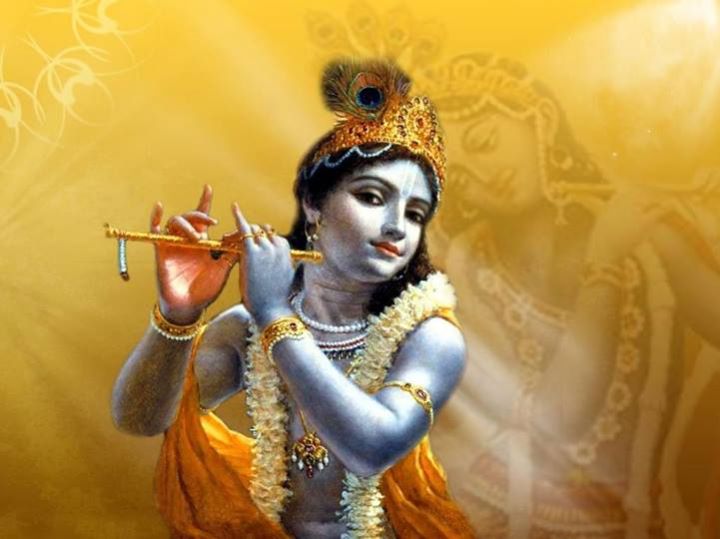Gita : Ch-5. Slo-25.
Srimad Bhagavad-Gita :
Chapter-5. ( Karma-sanyasa-yogam )
Slokam -25. ( One who is beyond duality and doubt, whose mind is engaged within, who is always busy working for the welfare of all sentient beings, and who is free from all sins, achieves liberation in the Supreme. )
Labhante brahmanirvanam rshayah kshinakalmashah,
chinnadvaidha yatatmanah sarvabhutahite ratah.
kshinakalmashah = who are devoid of all sins;
chinnadvaidha = torn off duality( one who have cleared the doubt of duality );
yatatmanah = engaged in self-realization ( one who is turned to atma-samyamanam );
sarvabhutahite ratah = engaged in welfare work in all living entities;
rshayah = Rishi-s ( Jnani-s with all above qualities);
brahmanirvanam labhante = attain brahmanandam ( Moksham/Liberation ).
Once a person sins have been eradicated then these are the things which transpire. As such demerits diminish the feeling of alienation from the atma or soul also diminishes.
Lord Krishna uses the words chinna-dvaitha meaning uprooting concepts of dualism such as pleasure and pain, joy and sorrow, success and failure etc. which give rise to doubts and delusions. How are they to be uprooted? By the sword of knowledge in the form of renouncing all desires for sense gratification and perceiving the atmas distinctive nature along with the Brahman or spiritual substratum pervading all existence.
The eternal atma which evaporates all alienation is omniscient, knowing past, present and future. Therefore by atma tattva or realisation of the soul one is able to enact their individual consciousness attain communion with the ultimate consciousness and with all doubts removed realise that the destruction of the alienation from the individual atma and the distinctive nature of paramatma or the Supreme Soul reveal two completely different realities.
The spiritually intelligent saintly beings who perform the before stated instructions, who perceive things with discrimination and chant Vedic authorised mantras, who have refrained from all sinful actions leading to inevitable reactions by the practice of selfless actions without desire or attachment, whose doubts have been vanquished by the sword of spiritual knowledge and who mercifully are active for the benefit of all living entities.
Lord Krishna reveals that such beings attain freedom from samsara or the perpetual cycle of birth and death by realisation of the Brahman or spiritual substratum pervading all existence.
Sages or saintly and holy men of purified minds who have true vision are known to be devoted to the welfare of all living entities. This has been seen to be a characteristic of compassion in them and becoming immersed in the Brahman or spiritual substratum pervading all existence they attain moksa or liberation from the material existence.
The compound word chinna-dvaidha means those who are no longer influenced by dualities such as pleasure and pain, praise and ridicule, acceptance and rejection.
The word yatatmanah means those who have conditioned their minds to focus on the atma or soul.
The words sarva-bhuta-hite-ratih means those who always wish for all living beings the same happiness and righteousness as they would wish for themselves.
The word rsayah refers to the saintly sages who are focused and intent on obtaining atma tattva or realisation of the soul. Those of this category abandon all impurities that are opposed to atma realisation and by doing so they shortly attain the bliss of the atma.
That the eternal atma is very accessible and can be easily reached Lord Krishna will explain next slokam.
To be continued ....





Comments
Post a Comment